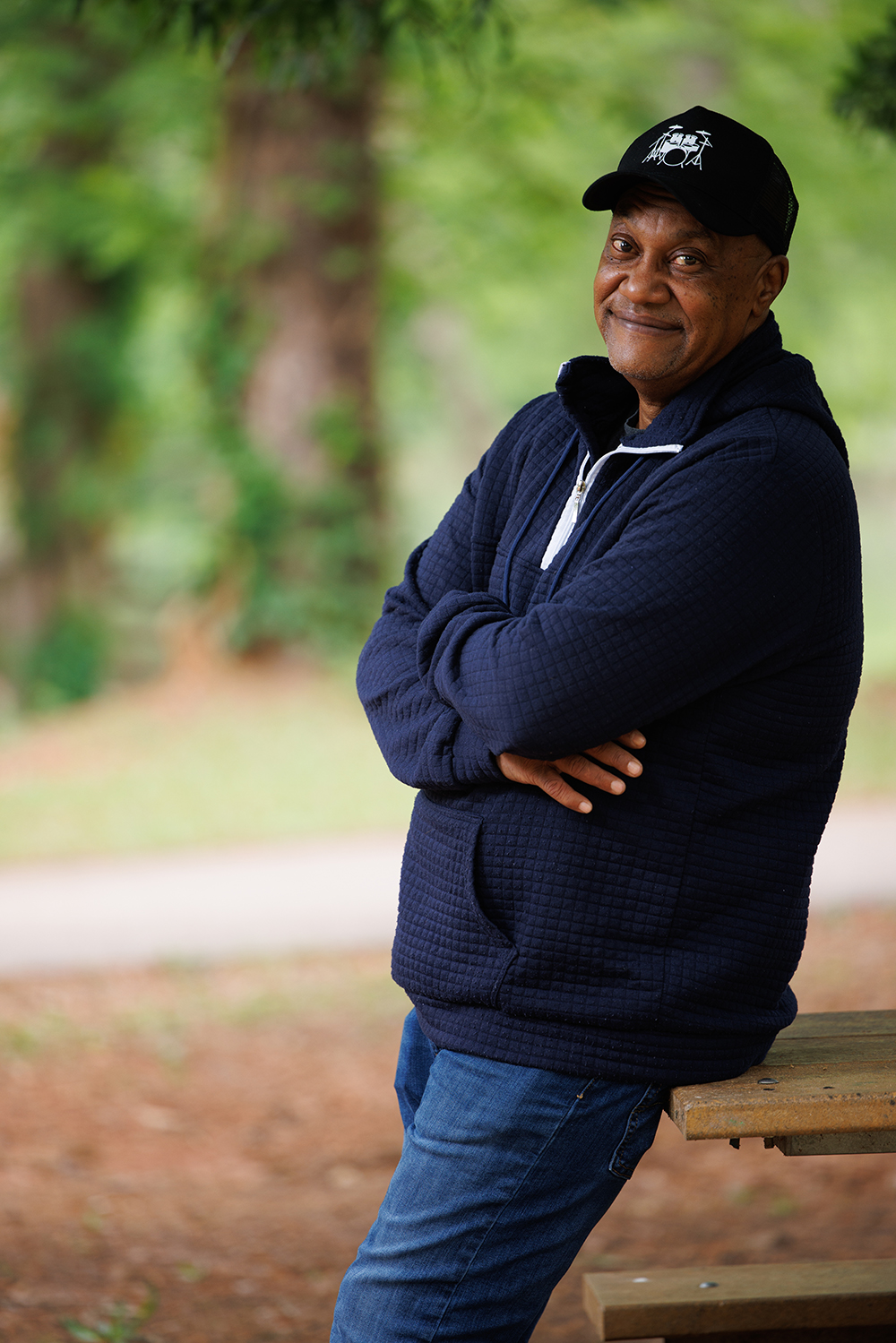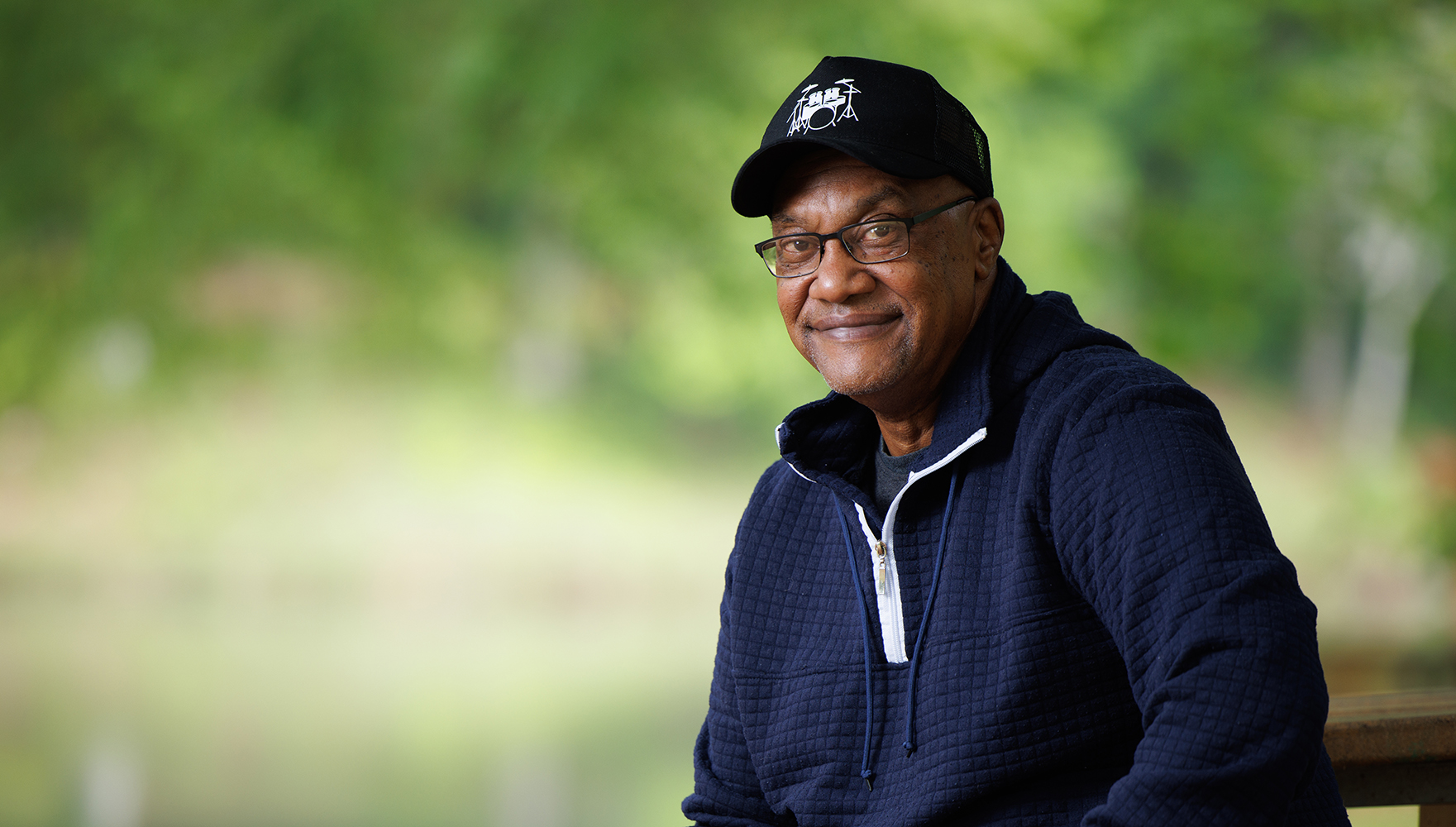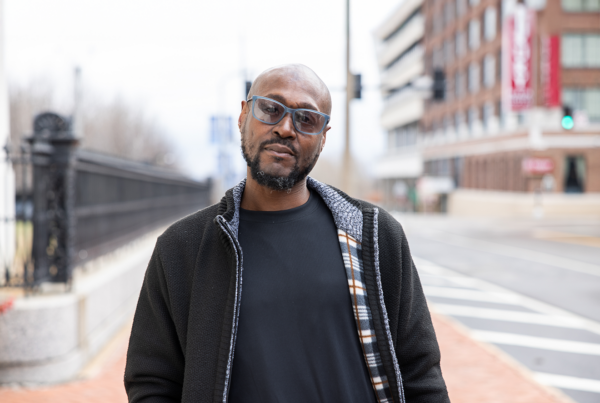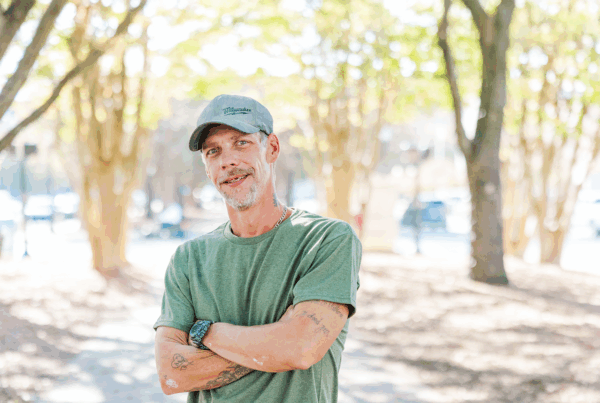In jail, surrounded by noise but deprived of music, Noel felt the silence most deeply. For a man whose life had once revolved around rhythm, the absence of sound was its own kind of punishment.
“Not being able to just get it off my back by sitting down at my drums and playing for a while,” he said. “That was hard.”
“I ended up with a good career for a pretty long time… I toured all over the world.”
Noel grew up in New Orleans, which he describes as a music city. “I grew up surrounded by music, a ton of music,” he said. He attended college on a music scholarship, played with Harry Connick, Jr. and the Marsalis family, and toured the world as a professional musician. “I ended up with a good career for a pretty long time… I toured all over the world.”
But he also faced temptations he wasn’t prepared for. He began using drugs, which led to addiction – and eventually to incarceration for theft-related crimes committed to support that addiction. His drug use destroyed his career and strained his family relationships.
Recovery wasn’t easy, but with the help of a 12-step program, Noel began to rebuild. He became certified as a peer counselor, turning his painful experiences into tools to help others.
As a peer counselor, “they say the qualifications are you have to have lived experience with drug and alcohol abuse,” he said. “If you’ve been to jail, that’s good too. You have to have a lot of experience with, you know, lying and stealing and cheating…” He laughs ruefully. “You’re talking about my resume.”
“All of these things that were deficits for so long in my life are now assets.”
For the first time, his past felt like a credential. “All of these things that were deficits for so long in my life,” he said, “are now assets.”
He earned certifications as a peer specialist and addiction recovery empowerment specialist. “Once I got in, you know, I hit the ground running because I have a real compassion, a real sincere desire to be helpful to people,” he said.
But addiction is a chronic illness, not a single decision. During a relapse, Noel was arrested – accused of breaking a store window and taking $300 worth of items. His bond was initially set at over $50,000 – an amount he couldn’t imagine anyone paying.
He spent more than a year in jail awaiting trial. Though legally innocent, he lived as if he were already sentenced. Jail was dangerous. Fights were common. He rarely spoke to family. And he was cut off from music.
After over a year, the bond was reduced to $5,000, and The Bail Project paid it. Noel was released – but with restrictions. He had to wear an ankle monitor and couldn’t return to the neighborhood where the alleged crime took place, which meant he lost his job.
He also lost his certifications, which required continuing education he couldn’t access behind bars. Despite that, being out of jail has allowed him to work more closely with his lawyer, get treatment for depression, and focus on recovery. He’s remained drug-free for more than a year.
“It meant freedom. But it meant a whole lot more than freedom.”
“It meant freedom,” he said. “But it meant a whole lot more than freedom.”

Today, Noel works at a group home for people with mental health and substance abuse disorders – hired by someone he once supervised.
“When he hired me, he said, ‘Noel, I know what you’re capable of, and I just want you to maintain. I know if you maintain your recovery, you are going to be a great asset to my company,’” Noel said.
His job includes enforcing rules, de-escalating tensions, and cooking dinner every night for 14 people. Though his housing doesn’t allow for drums, he practices daily on an electronic keyboard with headphones. Occasionally, he visits a music store to play in their drum room.
He hasn’t forgotten the role The Bail Project played in his second chance. “I have nothing but the highest respect and love and appreciation for what you do,” he said.
Noel still has a case pending. He still wears an ankle monitor. He still can’t return to his old neighborhood. But when he plays, even in silence, the music brings him back to himself.
It’s not just about rhythm. It’s about recovery – and remembering who he still is.
Thank you for reading. The Bail Project is a 501(c)(3) nonprofit organization that is only able to provide direct services and sustain systems change work through donations from people like you. If you found value in this article, please consider supporting our work today.











